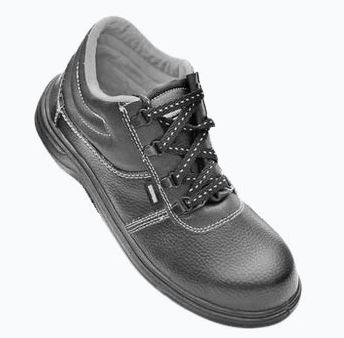Tel: 0129-4001010 Phone: +91 730 321 5033
Email: cs@absoluteveritas.com
BIS CERTIFICATION FOR PPE OCCUPATIONAL FOOTWEAR IS 15298 (PART 4):2017
In today's competitive landscape, maintaining market presence without a certified, high-quality product can be challenging. Obtaining a BIS license may also be essential for selling products in the Indian market. To achieve BIS certification and ensure product quality, manufacturers must adhere to the specified Indian standards.
Lets delve deeper into IS 15298(Part 4):2017 for occupational footwear.
IS 15298 (Part 4):2017 covers occupational footwear, detailing essential and supplementary criteria. Occupational footwear is designed with protective features to safeguard wearers against injury risks stemming from accidents.
Safety footwear is engineered with protective elements to shield the wearer from potential injuries resulting from accidents. It features toecaps and is crafted to defend against compression, tested at a minimum load of 15 KN, and impact, tested at a minimum energy level of 200 J.
Classification of Footwear:Per the Indian Standard, footwear is categorized using specific code designations.
| Code designation | Classification |
|---|---|
| I | Footwear made from leather and other materials, excluding all-rubber or all-polymeric footwear. |
| II | All-rubber (i.e. entirely vulcanized) or all-polymeric (i.e. entirely moulded) footwear. |
Occupational footwear is required to be constructed from materials compliant with the Innocuousness standards outlined in IS 15298 Part 4: 2017. It must also conform to one of the designated designs specified in the standard and meet its fundamental requirements.
In accordance with the level of workplace risk, additional specifications for occupational footwear might be necessary. In such instances, the footwear must comply with the relevant additional requirements. If the Applicant/Licensee requests both code designations (I and II), testing for each designation must be conducted separately.
TESTS
The subsequent test must be conducted for occupational footwear:
-
Tear strength test
-
Tensile test
-
Flexing resistance test
-
Water vapour permeability and coefficient test
-
pH value test
-
Abrasion resistance test
-
Chromium VI content test
-
Dimension test
Every piece of occupational footwear must display clear labeling, including details like size, manufacturer identification mark, manufacturer's type designation, year of production, European standard number and year, and other specifications outlined in the standard. Additionally, each footwear item may bear the Standard Mark (ISI Mark). To utilize the standard mark (ISI Mark), the manufacturer is required to obtain a BIS license from the Bureau of Indian Standards. This license is granted following a comprehensive assessment of manufacturing infrastructure, production processes, and quality control and testing capabilities during a visit to the manufacturing premises.
PROCESS FOR BIS ISI MARK CERTIFICATION

BIS CERTIFICATION PROCESS
Acquiring a BIS license requires a comprehensive review of manufacturing infrastructure, quality control abilities, testing resources, and production procedures. This thorough assessment guarantees that products not only adhere to regulations but also prioritize consumer safety and reliability.
NOTE:
For comprehensive guidance on the BIS ISI Certification process, please explore:
WHY USE ABSOLUTE VERITAS?
Absolute Veritas is a prominent organisation from the private sector of India primarily dealing with the Inspection, Testing, Audits, Certification of products& consulting services to various industries in India and worldwide, ensuring compliance with regulatory standards and industry requirements. Offering a comprehensive range of services including product certification, testing, training, auditing, and compliance services, Absolute Veritas helps manufacturers and importers achieve higher production efficiency and quality standards.
Absolute Veritas (AV) will handle end to end pre-registration request, sample preparation, documentation, testing and application process for FMCS Certification
For any questions regarding the most recent update on FMCS registration licenses, please reach out to us via email at cs@absoluteveritas.com








 ❮
❮
